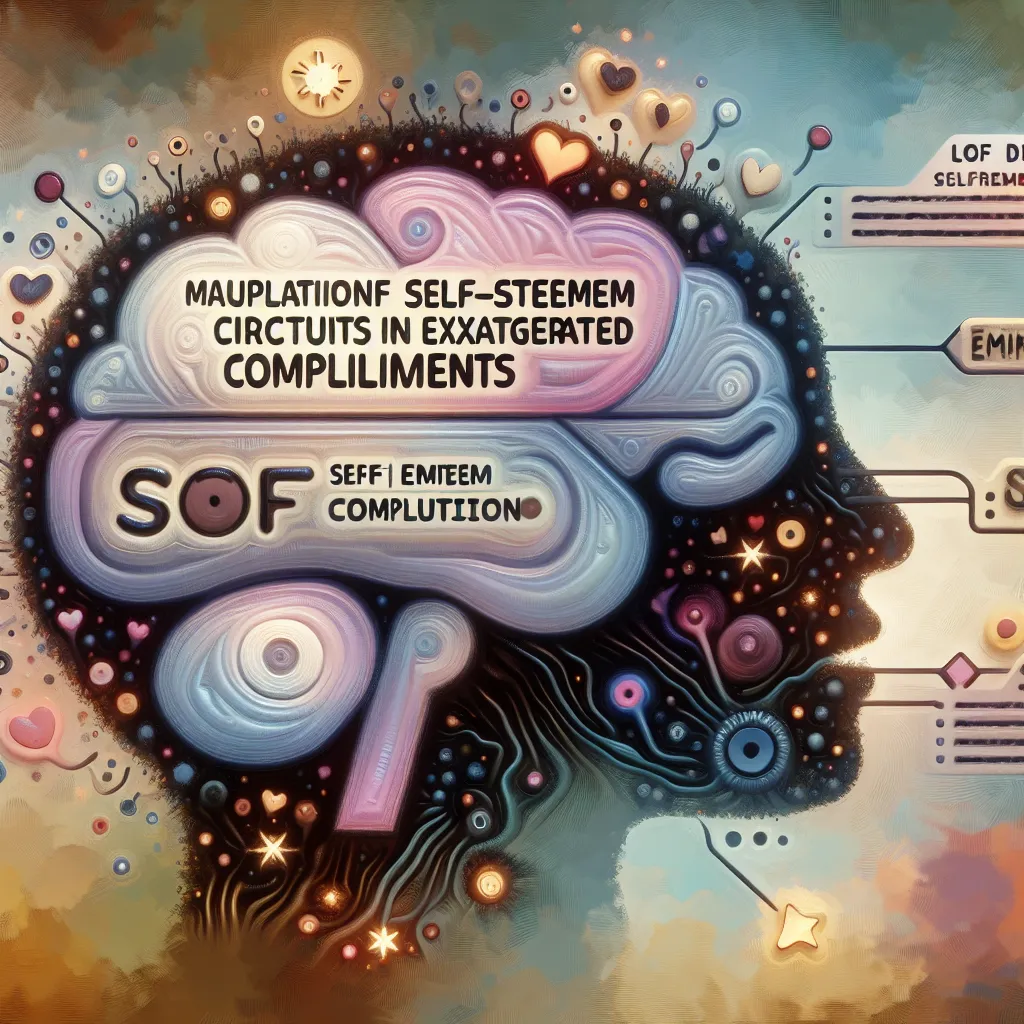Hello, relationship seekers!
Today, we’re diving deep into an important question about relationships: “How do a partner’s fake promises manipulate the brain’s expectation circuits?”
The Direct Answer
When a partner consistently makes false promises, it can manipulate the brain’s expectation circuits by creating a reward-punishment loop. This phenomenon is known as intermittent reinforcement, a conditioning scheme where rewards (fulfilled promises) and punishments (broken promises) are given intermittently and unpredictably. This unpredictability creates a perpetual state of hope and anticipation, which can lead to an addictive pattern of behavior, making it difficult for the person on the receiving end to disengage from the relationship.
Now, let’s explore the extensive evidence and details that support this answer:
1. Understanding the Brain’s Reward System
The brain’s reward system plays a crucial role in our behavior. It is responsible for the feelings of pleasure and satisfaction we experience when our needs or desires are met.
A. The Role of Dopamine
Dopamine, a neurotransmitter associated with pleasure and reward, is released when we anticipate or receive rewards. Fake promises can trigger this dopamine release, creating a sensation of pleasure and reinforcing the behavior.
- Expert Perspectives: According to Dr. Anna Machin, an evolutionary anthropologist at Oxford University, dopamine is not just about pleasure, but about the anticipation of it. This anticipation can be triggered by the promise of a reward, even if it’s not fulfilled.
- Psychological Research: A study published in the Journal of Neuroscience found that dopamine is released in response to cues that a reward might be coming, not just the reward itself.
- Real-World Examples: Consider a gambler at a slot machine. The unpredictability of the reward (winning) keeps them engaged and continuously pulling the lever, much like someone in a relationship with a partner who makes and breaks promises unpredictably.
B. Intermittent Reinforcement and Relationships
Intermittent reinforcement in relationships occurs when a partner’s behavior is inconsistent, alternating between rewarding and punishing.
- Historical Context: Skinner’s experiments with rats and pigeons showed that intermittent reinforcement leads to more persistent behavior than consistent reinforcement.
- Common Challenges: In relationships, the person making the promises may not even be aware of this pattern, while the person on the receiving end may struggle with feelings of confusion, frustration, and self-doubt.
- Practical Applications: Understanding this pattern can help individuals identify if they are in a relationship characterized by intermittent reinforcement and seek help if necessary.
C. Impact on Mental Health
The stress and uncertainty associated with intermittent reinforcement can have serious mental health implications.
- Expert Perspectives: According to Dr. Ramani Durvasula, a clinical psychologist, this pattern can lead to anxiety, depression, and even traumatic stress.
- Psychological Research: Research published in the Journal of Abnormal Psychology supports the link between unpredictable environments and mental health issues.
- Real-World Examples: Individuals in relationships characterized by intermittent reinforcement often report feeling “hooked” or “addicted,” experiencing highs when promises are kept and devastating lows when they’re broken.
2. The Manipulative Power of Fake Promises
Fake promises play a manipulative role by exploiting the brain’s reward system and creating an addictive pattern of behavior.
A. The Cycle of Hope and Disappointment
- Promise Made: The anticipation of a reward triggers the release of dopamine.
- Promise Broken: The disappointment leads to a drop in dopamine, causing feelings of sadness and disappointment.
- Promise Made Again: The cycle repeats, with the promise of a reward triggering hope and anticipation.
B. Power Imbalance in Relationships
When one partner consistently breaks promises, it creates a power imbalance. The person making the promises holds the power, while the person on the receiving end becomes increasingly dependent, hoping that the next promise will be kept.
C. Effects on Self-Esteem and Trust
Repeatedly broken promises can lead to a decrease in self-esteem and trust in the person on the receiving end. They may start to question their judgment, feel unworthy, or believe they’re incapable of having a healthy relationship.
3. Empowering Yourself in the Face of Fake Promises
Understanding the psychology behind fake promises can empower you to take steps to protect yourself and improve your relationship.
A. Recognizing the Pattern
- Identify Intermittent Reinforcement: If your partner often makes promises they don’t keep, you may be in an intermittent reinforcement cycle. Recognizing this is the first step towards change.
- Question the Promises: If the promises seem too good to be true, they probably are. Trust your intuition.
- Evaluate Your Feelings: If you frequently feel disappointed, anxious, or confused in your relationship, it may be time to seek help.
B. Seeking Help
- Professional Guidance: A mental health professional can guide you through the process of understanding and dealing with the impact of fake promises.
- Support Groups: Connecting with others who have had similar experiences can provide comfort, reduce feelings of isolation, and offer practical advice.
C. Establishing Healthy Boundaries
- Communicate Your Expectations: Clearly express your feelings to your partner and let them know how their broken promises affect you.
- Set Boundaries: Decide what you will and won’t tolerate in your relationship. If boundaries are repeatedly crossed, it may be time to consider ending the relationship.
4. Additional Context and Considerations
While this article focuses on the effects of fake promises, it’s important to remember that everyone makes mistakes and breaks promises occasionally. The key is to differentiate between occasional lapses and a consistent pattern of broken promises. Also, remember that change is possible, but it requires the commitment of both partners.
Conclusion: The Definitive Answer
Based on all the evidence we’ve examined:
- The Brain’s Reward System: Fake promises can manipulate the brain’s reward system by triggering dopamine release in anticipation of a reward, even if the reward never comes.
- Intermittent Reinforcement: This reward-punishment loop can create an addictive pattern of behavior, making it difficult to leave the relationship.
- Impact on Mental Health: The stress and uncertainty associated with this can lead to anxiety, depression, and other mental health issues.
Therefore, a partner’s fake promises indeed manipulate the brain’s expectation circuits by creating a reward-punishment loop, exploiting the brain’s reward system, and leading to potential mental health issues.
Understanding this pattern can help individuals better navigate their relationships and seek help if necessary. Healthy relationships are built on trust, consistency, and mutual respect. Don’t let the manipulative power of fake promises undermine the foundation of your relationship.



